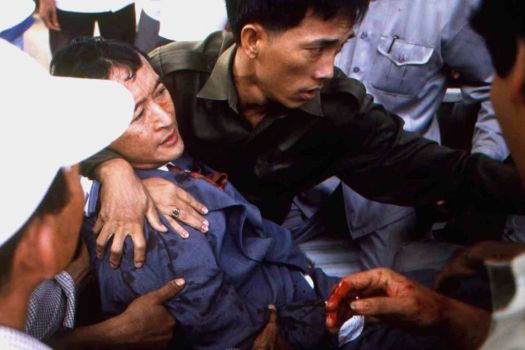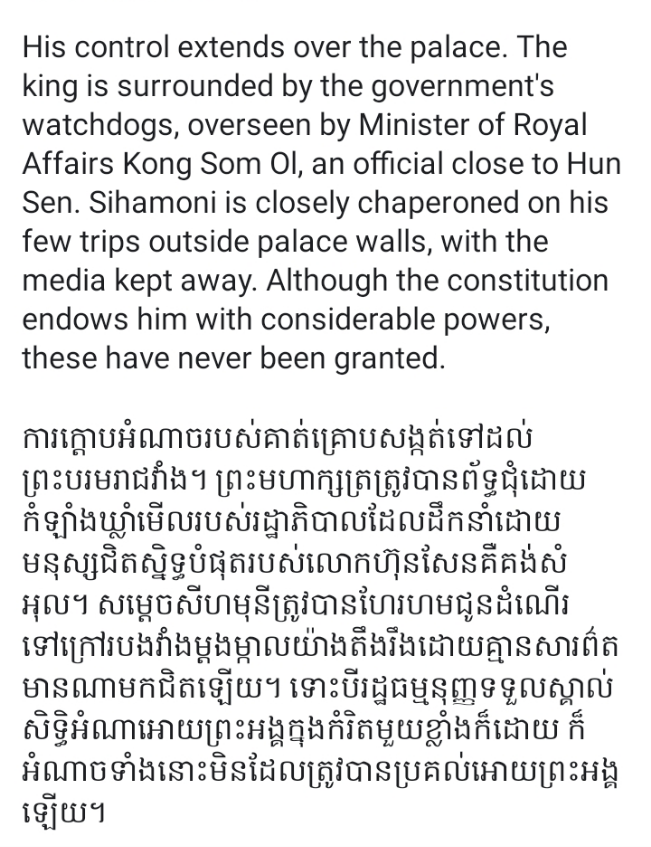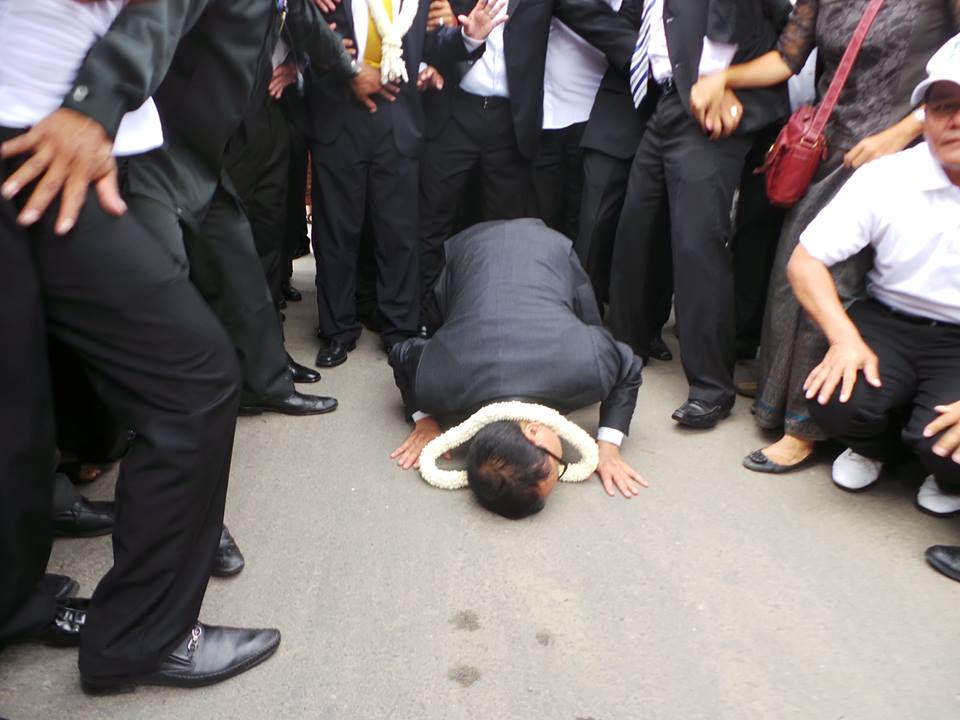Rainsy said that he would reconsider his return and his call for a popular uprising if Hun Sen released Sokha, reinstated the CNRP and organized a genuine election in the future.
Sokha has been detained for two years – the past year under house arrest – while awaiting trial on charges of plotting to overthrow the government.
០៨ តុលា ២០១៩ / 08 October 2019 – Report by Reuters (*)
(*) CAMBODIA PM THREATENS TO DEPLOY TROOPS IF OPPOSITION LEADERS RETURN
PHNOM PENH (Reuters) – Cambodia’s prime minister threatened on Monday to deploy the military if leaders and supporters of the disbanded main opposition party return from exile next month in what he would regard as an attempted coup d’etat.

At least 30 opposition activists have been arrested this year and accused of plotting to overthrow the government before the planned return from self-exile of Sam Rainsy, founder of the dissolved Cambodia National Rescue Party (CNRP), on Nov. 9.
In a ceremony in the capital, Phnom Penh, Prime Minister Hun Sen said Rainsy’s return would be an incursion by forces seeking to overthrow his government.
Rainsy has called for an uprising against the longtime leader. Hun Sen said that if opposition leaders and supporters returned, such declarations would mean that “the army must begin to deploy and use weapons of all kinds.”
“Attack wherever they are seen, there is no need to wait for an arrest warrant or not,” he said. “Supporters are arrested whenever they are seen.”
Last year, Hun Sen extended his rule of more than three decades in an election in which his ruling party won all the seats in parliament.
The CNRP had been disbanded months before the election by the Supreme Court, following the 2017 arrest of party leader Kem Sokha.



